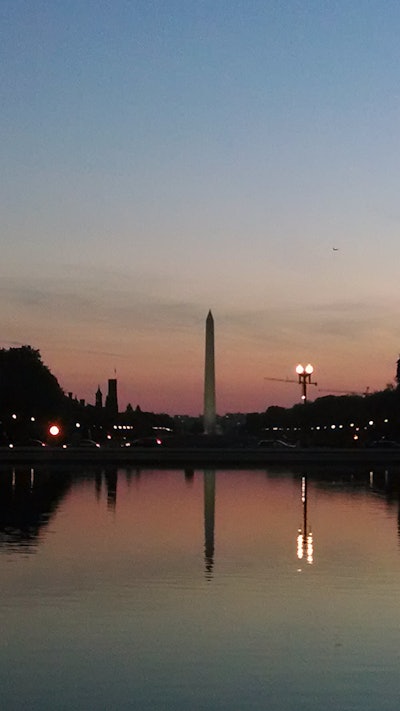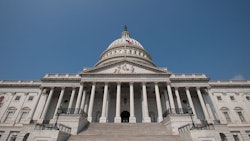
By Alison L. McConnell
WASHINGTON -- District of Columbia policymakers hope to sidestep a legislative landmine in January and push a voter-approved recreational marijuana law through the Congressional review process.
If they are successful, the new law could go into effect late by spring–but legal and legislative roadblocks are always a possibility lurking in the thorny relationship between Congress and its host district.
D.C. voters on Nov. 4 passed Initiative 71, legalizing limited possession and home cultivation of marijuana for personal use, with a 70% approval rating.
The measure allows residents aged 21 and over to grow up to six cannabis plants at home, and possess up to 2 ounces for personal use. It permits individuals to transfer–but not sell–up to one ounce of marijuana to another person who is also over age 21. It also provides for the use or sale of “drug paraphernalia for the use, growing, or processing of marijuana.”
Initiative 71’s approval in the fall election followed the enactment of a decriminalization law in July. That measure reduced cannabis possession penalties: When a person is found to have more than an ounce of marijuana, D.C. police may only confiscate it and issue a $25 ticket. The decriminalization law also prevents police from taking action when they smell marijuana, and from requiring identification from anyone carrying less than an ounce of cannabis.
The future of both measures fell into jeopardy earlier this month when Congress passed its “cromnibus” federal spending bill. The mega-law contained a provision that restricted D.C.’s ability to regulate marijuana use, but its language was confusing, and the provision’s impact is still being sorted out today.
The provision, or “rider,” blocks the District from using taxpayer dollars to enact marijuana reforms. In the jumbled language typical of federal spending legislation, it specified only that D.C. must not spend its tax revenue to “enact” laws decriminalizing marijuana–not “enact and carry out,” which would have been more typical lingo.
The omission was intentional, D.C. policymakers have said, to allow the District to implement and carry out laws that have already been enacted. The November election results were officially certified earlier this month.
As with all District laws, the measure cannot become fully legal until it passes a month-long administrative review at the hands of Congress. That review won’t begin until January 2015 at the earliest, after the holiday recess.
Republicans have said the provision will prevent D.C. from implementing Initiative 71. District Democrats have adopted a fighting stance and plan to send it to Congress anyway. They say the deal brokered between parties will allow both the decriminalization law and Initiative 71 to move ahead, but agree that it prevents the District from making future changes to its marijuana laws. Unless overturned, this prohibition could preclude D.C. taxing and regulating marijuana like alcohol.
Lawyers for the District have said they are crafting potential administrative workarounds, including collecting donations or using previous tax-year reserve funds, to get the measure to Congress without using 2014 tax revenue.
If history provides any clues, it may not be that simple. The 2014 battle over cannabis decriminalization is one chapter in the lengthy battle between Congress and D.C. over the District’s ability to self-govern. Congress has partial authority over D.C.’s policies because it can override appropriations of District tax revenue. When D.C. first tried to legalize medical marijuana in 1998, federal lawmakers effectively suspended the provision before it could go before voters. Congress glommed the prohibition into the federal budget for a decade, with bipartisan support.

























